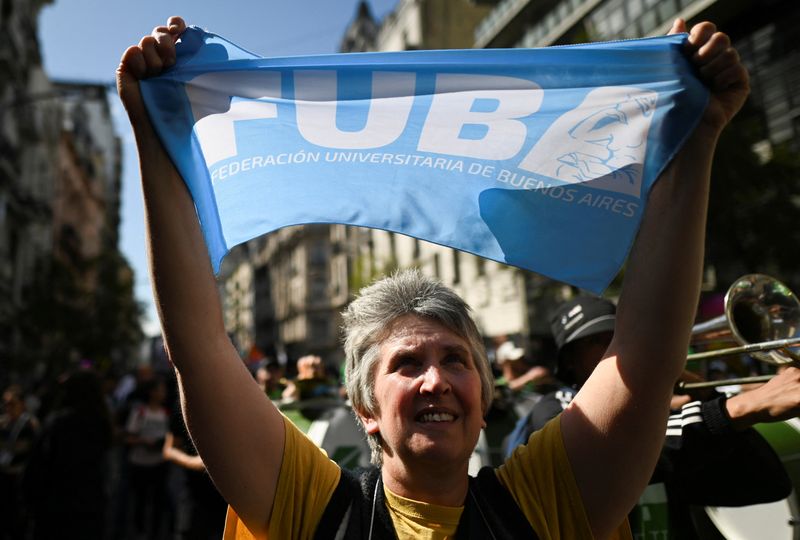BUENOS AIRES (Reuters) -Hundreds of thousands of Argentine students protested in the streets on Wednesday against sharp spending cuts at public universities by President Javier Milei's libertarian government.
The protests were organized after the administration threatened to veto a law Congress passed weeks ago to guarantee university funding, as Argentina faces an economic crisis with annual inflation close to 240% and over half of its population in poverty.
"The government has a systematic, methodical and gradual plan to destroy public education," Ricardo Gelpi, head of the University of Buenos Aires, said in a statement.
Milei's government has repeatedly justified cuts, deriding public universities as sites of "socialist" indoctrination, but the institutions have a strong reputation among Argentines.
After the protest, Milei's office doubled down, pledging to veto the "irresponsible" push to boost spending on national universities as well as any proposal that "threatens the fiscal balance."
Gelpi said Milei's administration does not care about education and that the cuts represented a small fraction of the country's economic output.
The head of Argentina's FUA university federation, Piera Fernandez, told the crowds that public university education is "fighting for its survival," adding that spending on education and science is an investment, not an expense.
In April, a protest that drew hundreds of thousands of students and teachers forced Milei to reconsider a cut in the higher education budget. University authorities later said the government did not make promised improvements.
Argentina's Ministry of Human Capital said in a statement that the government's commitment to public universities remained "firm."
"Public university education was never defunded," it said.

According to the University of Buenos Aires, university teachers and non-teaching staff have lost around 40% of their purchasing power since December, and deterioration continues.
"If the law is vetoed, the consequences would be very serious," added UBA graduate and teacher Florencia Rivero, saying it would affect wages, research and other fundamental activities. "So let's hope it doesn't happen."
